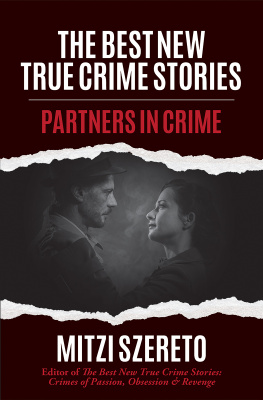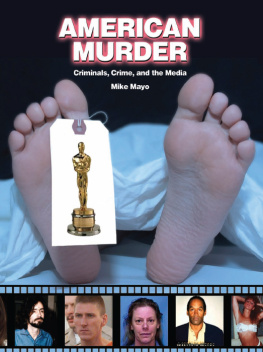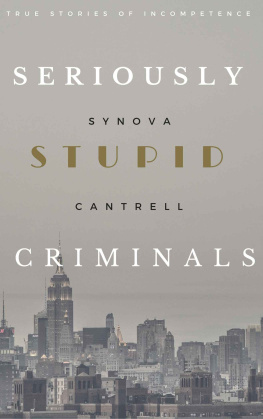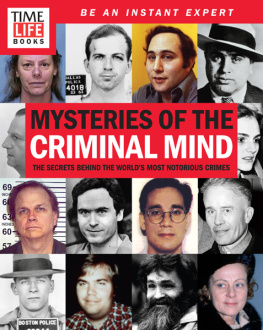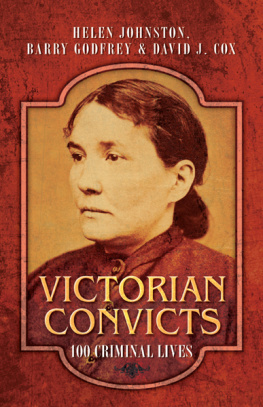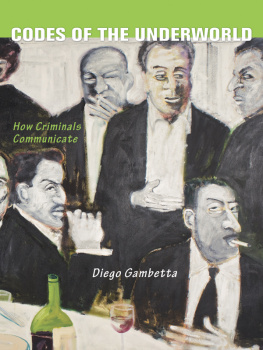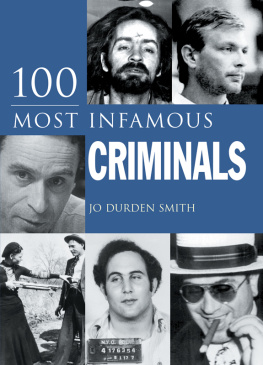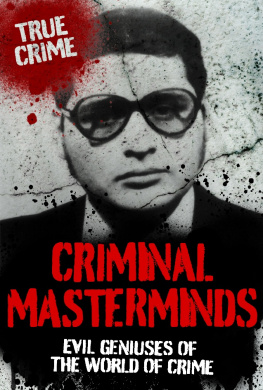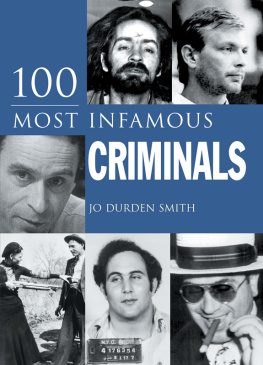Badfellas
First published 2001 by Berg Publishers
Published 2020 by Routledge
2 Park Square, Milton Park, Abingdon, Oxon OX14 4RN
605 Third Avenue, New York, NY 10017
Routledge is an imprint of the Taylor & Francis Group, an informa business
Simon Winlow 2001
All rights reserved. No part of this publication may be reproduced or transmitted in any form or by any means, electronic or mechanical, including photocopying, recording, or any information storage or retrieval system, without prior permission in writing from the publishers.
Notice:
Product or corporate names may be trademarks or registered trademarks, and are used only for identification and explanation without intent to infringe.
Library of Congress Cataloging-in-Publication Data
A catalogue record for this book is available from the Library of Congress.
British Library Cataloguing-in-Publication Data
A catalogue record for this book is available from the British Library.
Typeset by JS Typesetting, Wellingborough, Northants.
ISBN 13: 978-1-859-73409-4 (hbk)
ISBN 13: 978-1-859-73414-8 (pbk)
To Gran, without whose help this book would never have begun.
To Mam and Dad, without whose guidance I would have been the subject of this book rather than its author.
While researching and writing this book I have often thought about writing this page, being, as it is, the final part in what has been a long, hard and exceptionally rewarding period of my life. Over this period I have accumulated many debts, and in some small way I hope my effusive thanks on this page go some way to reassuring those who have helped me that their generosity will not be forgotten.
On the academic side, my most pressing debt is owed to Professor Dick Hobbs at the University of Durham, my mentor and guide into the world of academia. It was with his encouragement and guidance that I actually began to think that I had what it takes to be an academic, and that somebody might actually be interested in what I had to say. He supervised the PhD thesis on which this book is based, and was also good enough to read through various drafts of my work, and with brutal honesty tell me what was shit and what was okay. Perhaps more importantly he imbued me with an appreciation that being an academic still required a strong work ethic and a commitment to actually producing some publishable data. Id also like to thank Steve Hall from the University of Northumbria for continually pushing me to think more deeply about theory, and Gary Armstrong for examining and passing my PhD and being broad minded enough to appreciate that ethnography still has a part to play in informing us about our social world and changing working-class culture. Id also like to thank Kevin Stenson, Chris Crowther, Chris Greer, Max Travers, David Welsh, Diana Medlicott and Marisa Silvestri at Buckinghamshire Chilterns University College for helping to get me my first full-time academic post, making me welcome and providing a friendly working environment, and all in the Department of Criminology at the University of Teesside, especially Mark Simpson, Peter Harper, John Harrison, Colin Webster, Colin Dunnighan, Roger Moore, Jill Radford and Sarah Soppitt. I would also like to express my sincere thanks to Malcolm Young for favourably reviewing my manuscript and offering an insightful and realistic critique of my work, and Berg Publishers for publishing this book.
There are also many outside of academia to whom I owe a great deal. Firstly I need to thank all those who gave up their valuable time to talk to me, and all those who participated, knowingly or unknowingly, in the ethnography. Few people who engage in any form of criminal activity have anything at all to gain by speaking to academics, and I greatly appreciate their generosity and honesty. I learnt a great deal from doing this research and I owe them my eternal gratitude. Unfortunately, the cheque isnt in the post. I would also like to thank a wide and varied circle of friends who have given me more laughs than anybody has a right to. Theyve also had a significant impact upon my work by just being regular participants in what we sociologists might call a specific urban milieu. Id especially like to thank Nel, Ju and Gav, for just being great friends and great entertainment. Others worth a mention include Gos, Dez (still Ford Estates most eligible bachelor), Damo, Dan, Derek, Pricey and Mad Dog and all the other usual suspects who are still hanging about and getting up to mischief. Space restricts me from adding to the list. I must also thank my brother Chris for getting the good looks instead of the brains, and Carol for producing Emily and Jonathan, the two most perfect children to walk the earth.
But most of all Id like to thank my perfect family.
One quarter of us is good. Three quarters is bad. Thats a tough fight, three against one.
(Meyer Lansky)
Civilization is not reasonable; not rational, any more than it is irrational. It is set in motion blindly, and kept in motion by the autonomous dynamics of a web of relationships, by specific changes in the way people are bound to live together.
(Elias 1982: 232)
This study describes and explains clearly perceptible economic, social and cultural transition in the North East of England since the late 1970s. In detailing these global changes, I will focus on the effect that they have had upon a specific locality and how those changes have manifested themselves upon changing masculinities and associated criminal practice and opportunity.
I will go on to detail the methodological structure and research strategy of this study in the coming pages, but first will attempt to frame the study in terms of its theoretical basis and place its structure and findings within a wider sociological context.
In this study I attempt to describe the social, economic and cultural processes that have resulted in the changing social action I have witnessed. As I will show, the social structures that exemplified the industrial modern age throughout much of the twentieth century up until, roughly, 1980, have lost their solidity and relevance to contemporary society, and behaviour and culture have altered to fit in with new social and economic circumstances. These processes, de-industrialization, globalization and the arrival of post-modernity, have resulted in changing masculinities and the evolution of criminal trends in the North East.
Ideas and issues associated with what can generally be termed the post-modern are central to the theoretical basis of this book. I use theoretical developments associated with post-modernity throughout this study, and rely heavily on issues and theory that are associated with the process of Western de-industrialization, and that are often seen as being symptomatic of post-modernity or are in some way tagged on to the debate. I do not take any direct position in relation to this theoretical debate and attempt no definition, but I find the general idea of the post-modern and the decline of structure and meta-narratives useful in explaining what is a rapidly changing region in a rapidly changing world.
As I indicate above, the social action and criminality described in these pages is explained in terms of its social roots, and I have placed special emphasis on firsthand acquaintance with social life (Platt 1994: 57). In this regard, this study takes a good deal of its theoretical inheritance from the work of the Chicago School of criminology, especially in terms of methodological foundations and the desire to detail aspects of city life. As I will discuss later, participant observation was a central research tool in this study (although not all of the ethnography appears here), and as I have employed this apparently fast-disappearing research tactic, I am the inheritor of the Chicago School tradition (Downes and Rock 1988, Chapter 6).


